If You're In a Toxic Friendship, You Seriously Need to Read This

Friends truly are chosen family. When you need someone to lean on, your BFF is there. When you're down or stressed or sad, texting your bestie in your own secret language (comprised mostly of emojis, tbh) is always the pick-me-up you need to get the day back on track. Your bestie knows so much about you (and vice versa) and your relationship weathers so many life events (like freshman year, prom, graduation and so much more). While some of your crushes and even early relationships might come and go, your friends are there through it all, to support you and hold you up.
But, sometimes, even the strongest of friendships can turn sour. Betrayal, personal issues or simply moving in two different directions in your lives can cause the most tried and true friendships to fall apart. And sometimes someone you thought was a true bestie turns out to be not really a friend at all — which can be hard to admit.
So how can you tell if you just hit a bump in the road, or if your friendship is traveling in an unhealthy direction? After all, the distinction between these two things can be pretty subtle. There are so many grey areas when in comes to relationships (no two friendships are exactly the same) that you might feel uneasy about a current relationship, while still unsure if it's actually toxic.
If you or someone you know is dealing with a toxic friendship, it can be hard finding someone to talk to especially if your bestie is the toxic friend in question. That's why we asked experts to weigh in. From how to determine if a friendship is, in fact, toxic to how you can distance yourself without alienating yourself from your entire friend group, here's everything you need to know about coping with a toxic friendship.
WHAT IS A TOXIC FRIENDSHIP?
The tricky thing about toxic friendships is that the warning signs can be incredibly subtle, which means it's easy for them to sneak up on you. "A toxic friendship is an unhealthy relationship that hurts you emotionally and can result in things like low self-esteem, self-isolation, and acting in ways you otherwise wouldn't," Nitasha Shetty, assistant professor of psychiatry at Columbia University Medical Center and director of psychiatric services at CUCARD, explains.
A toxic friendship is not the same as just a crappy friendship, but telling the difference between the two can be hard. "There are shades of grey when it comes to a toxic friendship versus a friendship that's just incompatible," Melissa Hetzel, LCSW and Director of Clinical Services at Sonora Behavioral Health in Tucson, Arizona says. "The main difference is that toxic relationships can affect your self-worth. If you start questioning yourself or you feel like your self-esteem is lower when you're around this friend, then that's a problem."
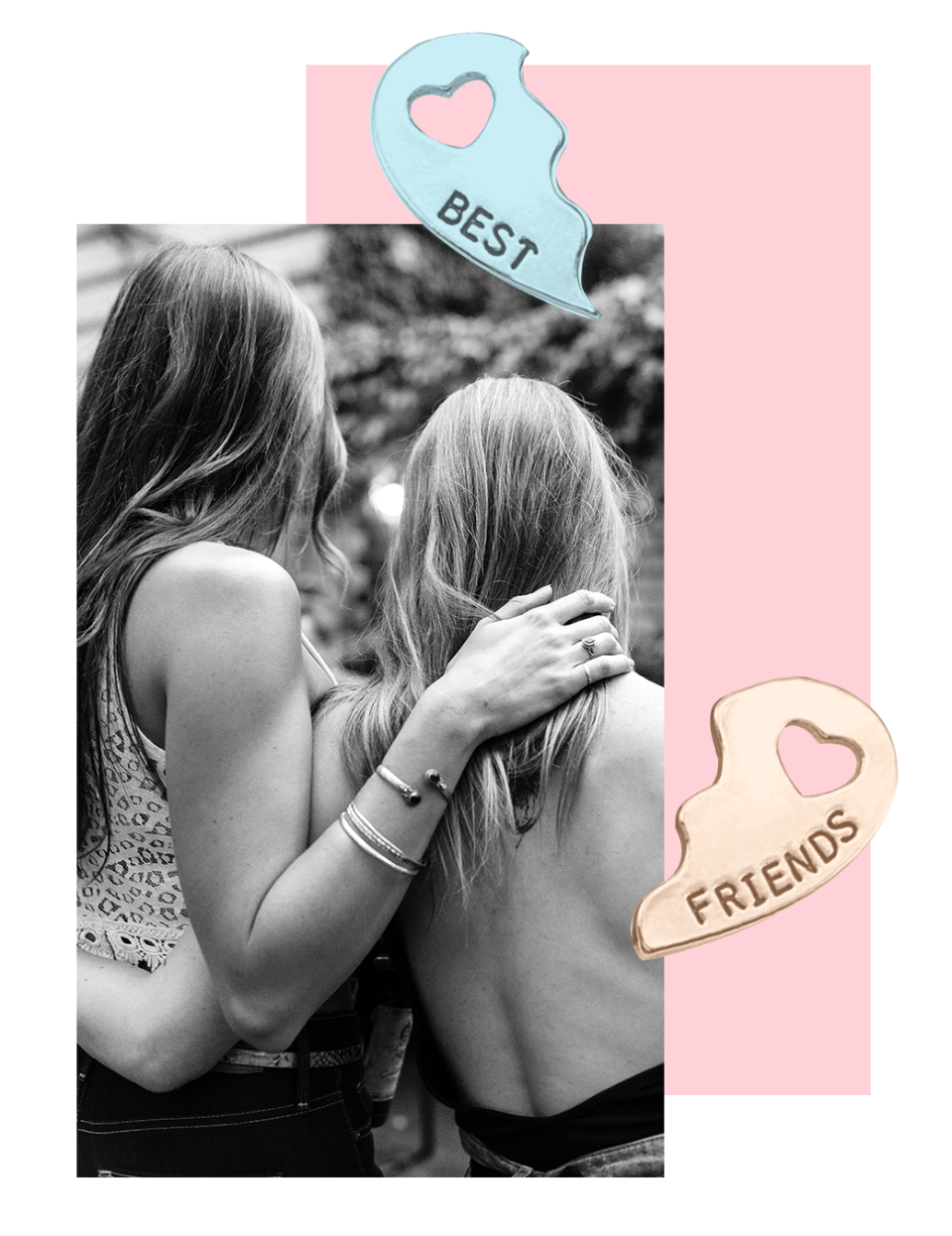
A toxic friendship is a bad friendship with the added element of being emotionally unhealthy. Mental health includes your emotional, psychological, and social well-being. And studies show that your mental health is very much connected to your physical health. If a friend is treating you in a way that starts taking a toll on you emotionally, then they're in toxic territory.
Monica R., 18, says she learned the difference between a bad friend and a toxic one when she entered high school.
"I had some friends in middle school who just kind of sucked. There was one who talked bad about me, and another one who seemed to want to be friends just so she could get close to my guy-friend (who she liked). While those friendships were frustrating, they weren't the same as the toxic one I had later on in high school. This girl and I got so close and I trusted her with everything. Then she started acting out and being mean to me, but then would be so nice to make up for it. It got to a point where her making fun of me became just a part of our dynamic, and I really started to believe the bad things she was saying about me. That's when I knew that this was a step above someone just being a crappy friend. She was trying to drag me down, and it was working."
In its most extreme form, a toxic friendship can take on the shape of emotional abuse. While rare, it's important to know the uppermost limit of a toxic friendship in case you start to notice yourself heading down that path. "If you are in a friendship that is cutting your self esteem down so low that you start contemplating self-harm or suicide or that you find yourself doing things you know aren't good for you, then you need to get out of that friendship immediately," says Hetzel. "An extremely toxic friend will try to isolate you, and if you already have mental health issues like anxiety and depression, this kind of relationship can have an even more dangerous effect on you."
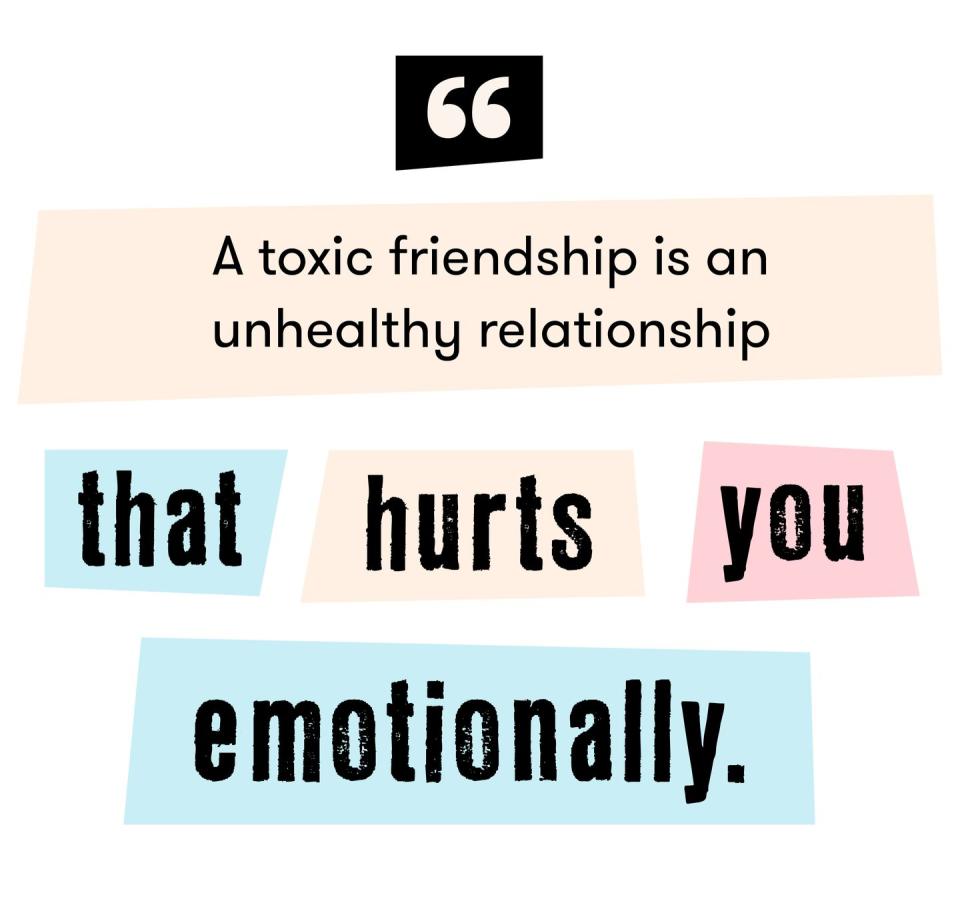
HOW DO YOU KNOW IF YOUR FRIENDSHIP IS TOXIC?
When it comes to toxic friends, there are some major warning signs you should be on the look out for...
You Feel On-Edge When You Spend Time Together
"Pay attention to how you feel before, during and after you spend time with this friend," says Shetty. "People in toxic relationships might feel nervous, on-edge, frustrated, ignored, ridiculed or guilty." If you feel like you’re constantly walking on egg shells to avoid a certain negative behavior from that person, it could also be a sign the relationship is unhealthy. So the next time you find yourself anxiously stuttering while trying to chat with them or biting your nails repeatedly while reading the group text, take a step back and consider if this friendship has actually been giving back all that you've been putting in.
You Don't Like The Person You Become Around Them
"People might note that they're acting in ways they otherwise wouldn’t when in the company of someone toxic," says Shetty. Are you being reckless? Doing things you regret? Acting in a way that makes you feel guilt and shame when you lie down to sleep and think about your day? If you're not being you when you’re around your friend, there's a chance that something's up.
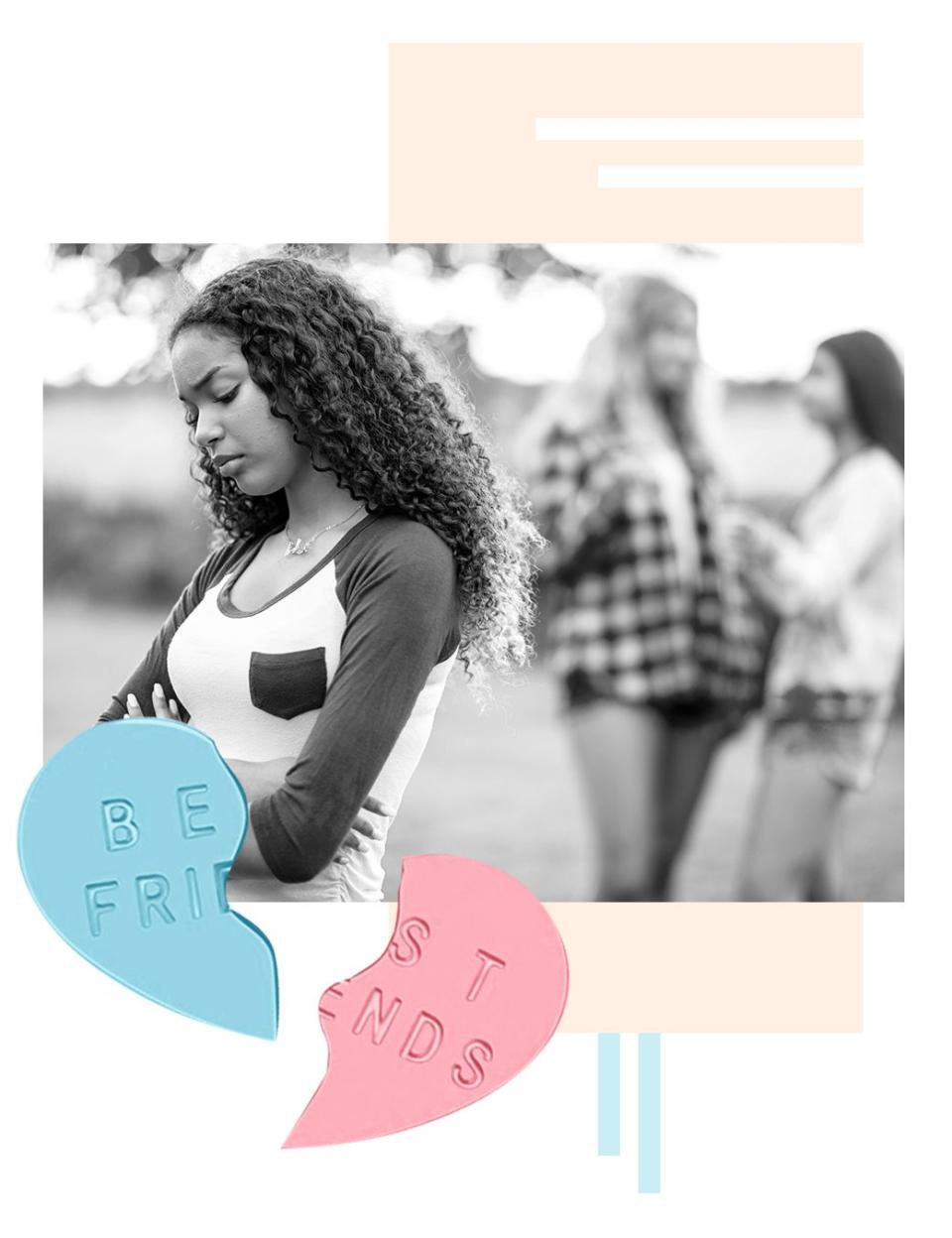
They Make You Feel Emotionally Exhausted
If you're not sure if you have a toxic friendship on your hands, take some cues from your body. "Another marker is if you feel really drained of emotional energy after being around someone instead of feeling uplifted or supported," Shetty says. Ultimately, friends are supposed to lift you up, so if you wind up feeling anything but that when you're around someone, there might be some toxic behavior in there.
You Rarely Hang Out With Your Other Friends Anymore
Another warning sign is that they might try to keep you all to themselves, according to Shetty. "Convincing someone that they're isolated and have no one else to turn to is a sign of manipulation," she says. If you're isolated, you no longer have a system of checks and balances in the form of other friends telling you that there's some toxicity going on. This means that the toxic friend has an easier time controlling you, and that's not good.
You'd Never Treat Someone The Way This Friend Treats You
Deep down, you know what a good friend is. A good friend listens, they’re attentive, they try to be kind and respectful, they prioritize their friends while still keeping some boundaries that are important to them. Use this lens to examine how this so-called toxic friend is treating you. Do they say things you would never dream of saying? Are they doing things that you would never dare do to a friend of yours? Do they make you feel bad? Do they take advantage of you? If their actions aren't adding up, then you might want to revisit whether this friendship really is all that.
You're Putting In More Than You're Getting Out
"A strong friendship is mutually beneficial — it shouldn't be one-sided," says Shetty. "If you feel like you're taking on a lot of care for the other person and it's not reciprocated, that's not a good sign."
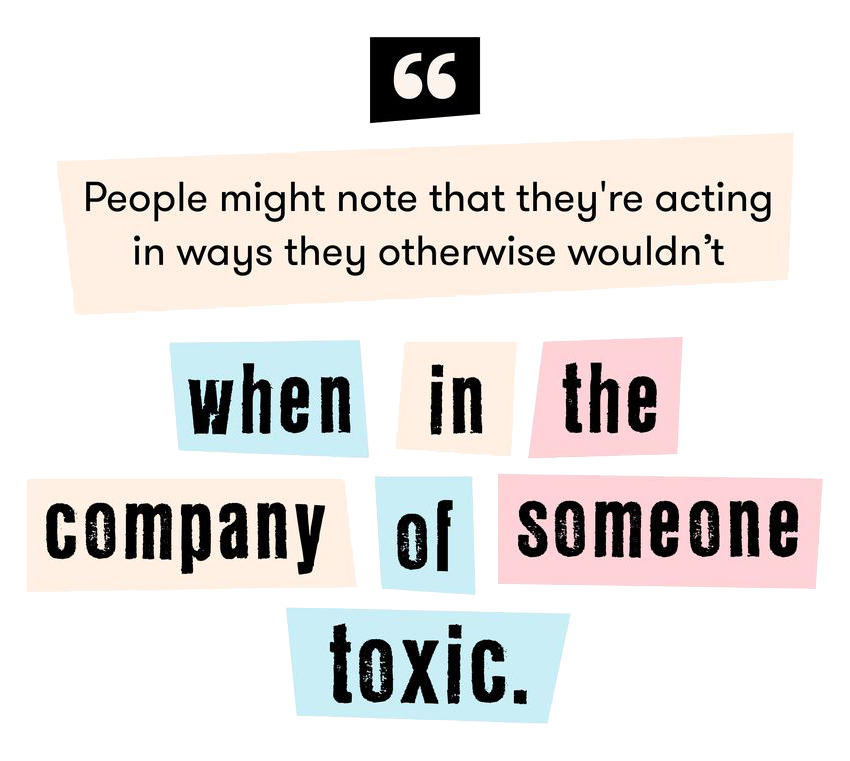
That's something Morgan Jensen, 22, learned from one friendship in particular. "I had a friend who I literally had to baby and parent," she says. "I was always cleaning up her messes, I was always coming to her rescue, always stood up for her even when she was in the wrong. I let her live with me, I let her sleep in my bed while I slept on the floor. When we would go out, I wouldn’t participate in drinking, knowing she would get too drunk and I would have to be the designated driver... One day I had enough, told her how I felt and cut her out of my life in every way possible. I stopped hanging out with people she hung out with, blocked her on everything and I found myself finally able to breathe."
Their Personal Issues Start To Creep Into Your Friendship
Unfortunately, toxic relationships in general are far too common. When you enter into any kind of relationship with another person (whether it's romantic or platonic), you're making yourself vulnerable to them. As time goes on, your relationship deepens and you begin to experience more sides of the other person, and there's a chance that they might have some problematic facets or personal issues that can start to affect you.
Also, there's a chance that you're both just not in a good place to support each other, and that's why the friendship has entered toxic territory. "Friendships can fill different needs depending on where you are in your life right now," says Shetty. "If you know that your self esteem is a little low or you're just feeling more vulnerable, it might not be the best time to be in a friendship with someone who has the same needs as you do."
HOW DO YOU DEAL WITH A TOXIC FRIENDSHIP?
Let's say you're starting to feel like this friend really is toxic... what next? Well, you can handle this situation a few different ways.
Get Some Space
To start, try spending a little less time with this person and clock how you start to feel. Are you happier? Do you feel less stressed? Is it a relief to feel like you're not walking on eggshells anymore? That's a sign that the friendship really was taking a toll on you, and you can look forward to better days as you continue to gain distance from that person.
Revisit Your Friend Network
Now that you've distanced yourself a little, reach out to other people in your network. Maybe there's a camp friend that you've always wanted to be closer with or someone you sit next to in class who seems nice. Reach out to them and see if they want to hang out. While a toxic friend might try to make you feel like you're alone in the world, you're not. "It will never be the case that there's only one person who will be there for you," says Shetty. "There will always been opportunities to meet new people and reconnect with old friends, but you need to take some time to see the broader network you already have."
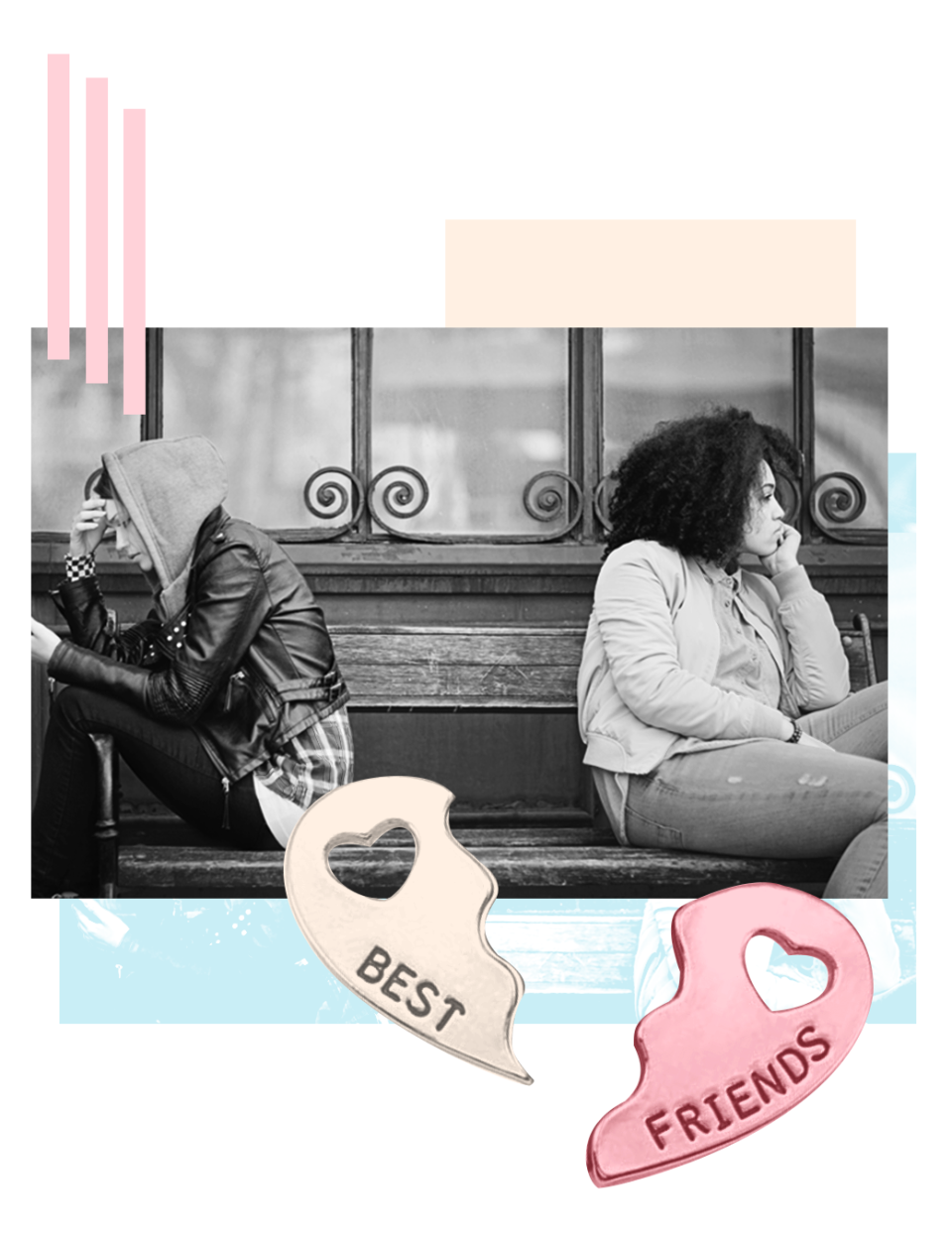
Reevaluate Your Friend Group
If your toxic friend is part of a larger friend group, then you may need to distance yourself from them. Gabrielle K., 18, shares her experience with a frenemy squad that turned out to be toxic.
"I was part of this friend group and there was one girl who was like the Regina George of the squad," she says. "At first, we were close, but then she decided she didn't like me anymore. She kind of turned my friends against me and when we'd all hang out, they would take turns at low-key making fun of me. I was so afraid to leave to group because they gave me a hard time when I was around, but I couldn't help thinking how much worse they'd treat me once I left. In the end, it all became too much and I stopped hanging out with them, joined my school's drama club and got a whole new group of friends. Even though I kept waiting for the sky to fall, it actually all turned out fine, and now I have better friends in my life anyway."
If you find yourself in a similar Mean Girls sitch, try to connect with other members of your squad one-on-one and see if you have a true ally there.
Ask one of the people in the group that you get along with most to hang out after school or move off your group text and slide into their DMs. Try fostering that relationship and see where it gets you. But at the end of the day, you have to evaluate whether this friend group is really good for you, and if you’d be happier finding a new squad."It's a process, and you have to determine how much effort is worth staying in this friend group," says Shetty.
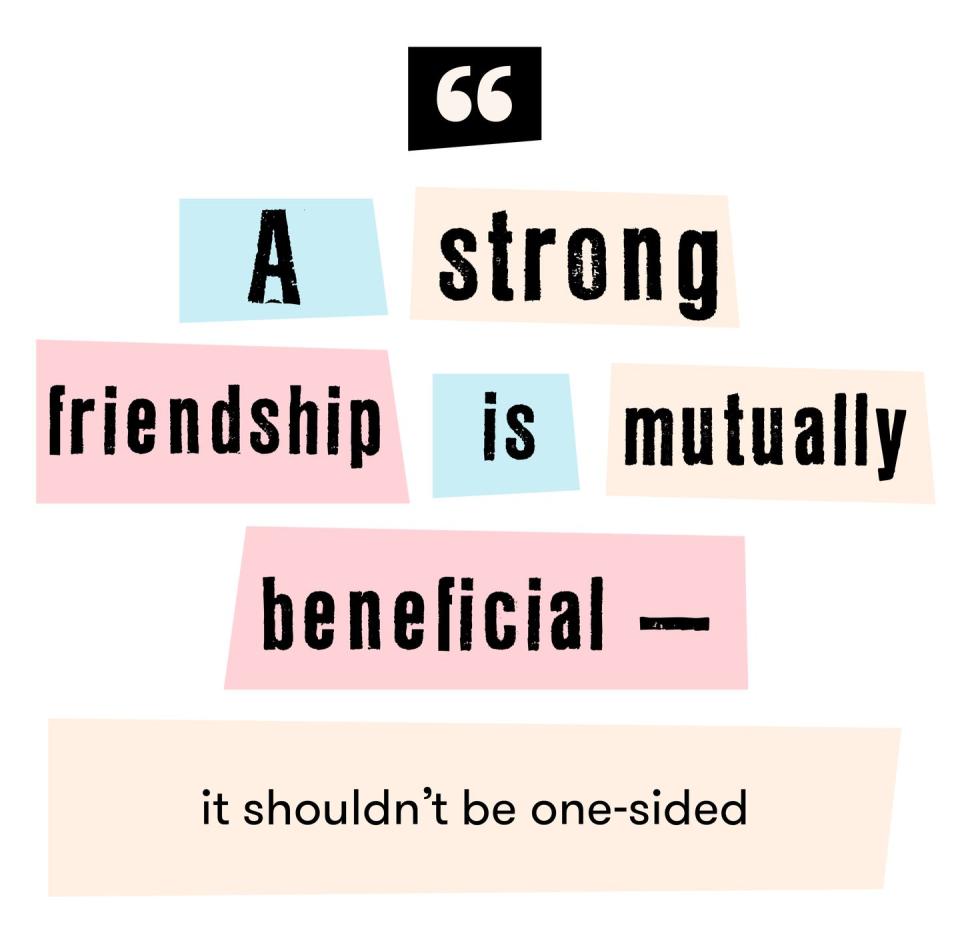
If it seems like that friend is nice to you on text but gives you a hard time when the toxic friend is around, know that it's not your fault. Even if you like that person, if they’re not willing to be a good friend to you all the time, they’re not a true friend. "Pour your heart into your passions and you can find more like-minded friends in the process," says Hetzel. Join a club at school, try out a painting class, or get involved in activism around a cause that matters to you and see if there's anyone who you gravitate towards.
Cut Them Out Of Your Life and Move On
Let's say you get the strength to cut this toxic person out of your life (go you!)... now what? Well, first things first, take a deep breath. "Give yourself time and remind yourself that you're not alone," says Shetty. Friendship breakups can feel like romantic breakups, even if they're for the best. You might cry over losing this friend. You might feel sad for days. You might be jealous of the new people they start hanging around with, and that's completely normal.
Once you've taken a little time for yourself, don't drive yourself crazy overthinking it. It can be so tempting to go over the situation again and again. You might replay fights that you had or pore over the last texts they sent you, but try to stop yourself. Overthinking can sometimes put you in a rut and keep you from moving on and feeling better. You might start to wonder if there was something wrong with you or if the toxic friend turns on you, you might start to feel even worse. But remember, this is how toxic friends manipulate you and bring down your self-esteem. If a friendship doesn’t make you feel good, you’re better off without it. "Don't always believe what you think," says Hetzel. "Sometimes you need to change your thought process and actively move towards something healthier." Fake it 'til you make it!
At the end of the day, friends come and go, but the one relationship that remains constant is the one you have with yourself. If you feel like you're being disrespected, be kind to yourself and move away from the bad vibes so you can be closer to people who really deserve your time.
Seventeen is committed to telling teens' stories. If you have a topic you'd love to hear advice on, please fill out the form below:
('You Might Also Like',)

